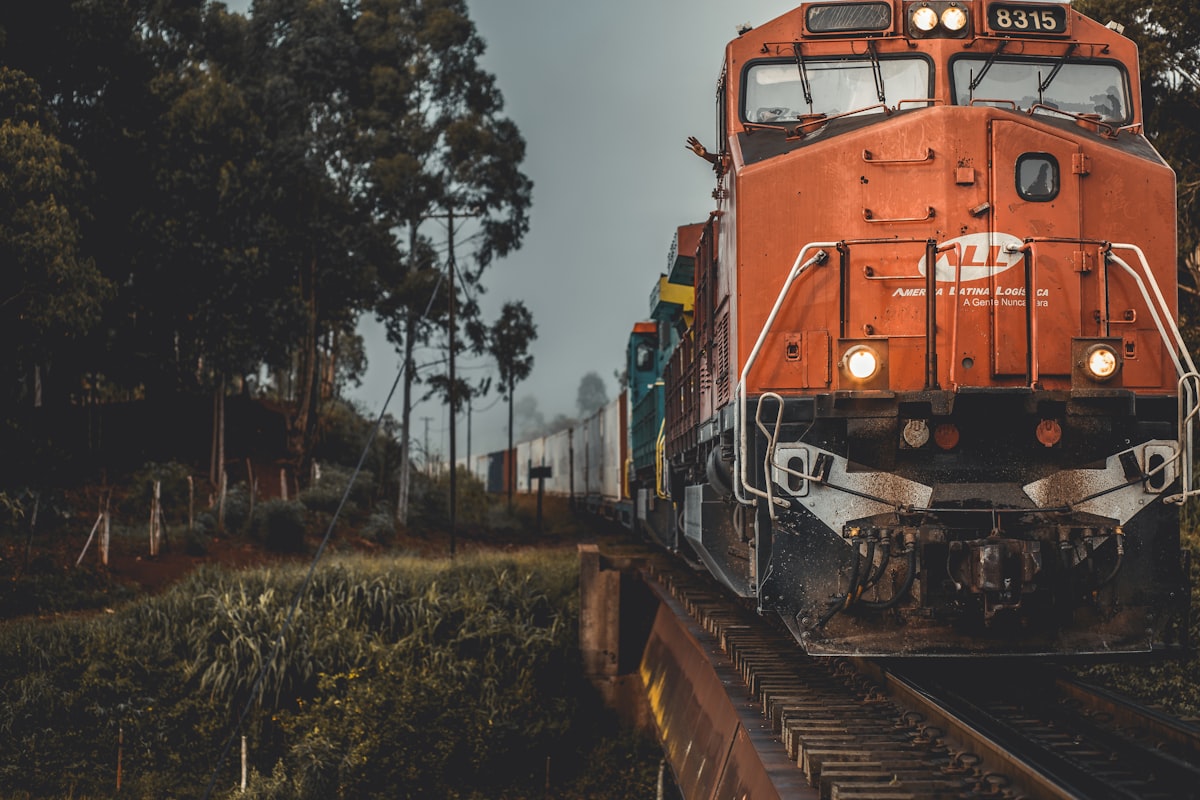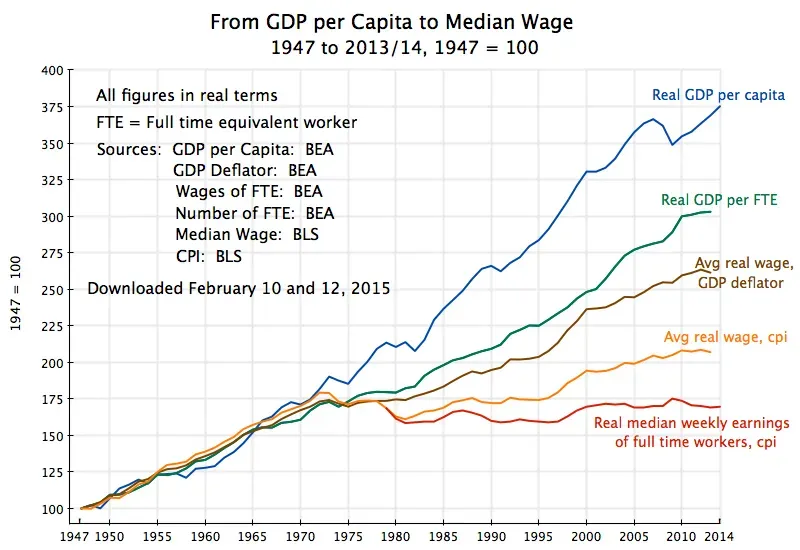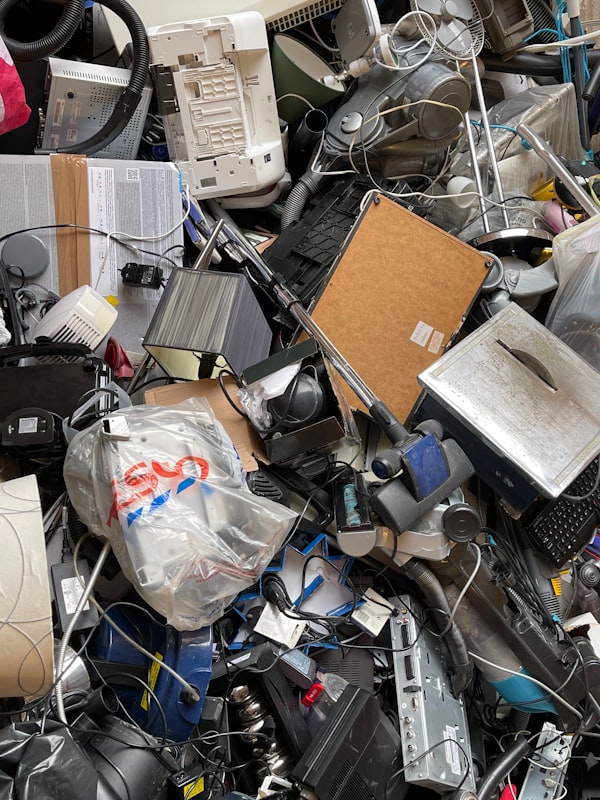Railroads, Labor, And The End of The American Dream
We’re all waking up from the American Dream that turned into a nightmare and opening our eyes for the first time.

When I was a boy I was enamored with electric trains. I was born in the United States but grew up in my early years in Germany. That’s where my parents gifted me my first Märklin train set. I have fond memories of spending hours playing with the tracks and trains and never imagined I would one day work in the industry.
In late 2007 I went to work for a rail consulting company. I didn’t design the tracks themselves, my office mate did that, but my responsibilities were related to drainage design and site layout of parking lots and sidewalks. I helped write reports on high-speed rail corridors, flood mitigation systems in New York City, and many other rail transportation-related projects. I’m proud of the work I did there.
One project let me out to the central north and far northwest. I visited Amtrak stations in North Dakota, Montana, and Idaho. I did site reconnaissance through Oklahoma, Texas, and parts of California. I got to travel throughout the “forgotten places” of the USA and talk to hard-working people. I saw vibrant towns and store-shuttered towns. I saw endless fields and tracks and powerful locomotives barrel down miles of tracks.
There’s something magical about the railroads and how they connected all of us together in the past. Now we just drive everywhere but if you can close your eyes and imagine what life was like 100 years ago, you’d know that railroads were what built this country.
When I moved to my town I met a man named Frederick (Fred). Fred was what the American Dream used to be. He grew up in Pennsylvania and then in Illinois. He grew up around railroads and used them to travel to Chicago at age 10, much to the dismay of his parents.
He enlisted in the Navy in World War 2 and fought in the Pacific. After the war, he was stationed in Tokyo before being honorably discharged and moved back to the United States.
Somewhere along the way he became a carpet salesman and worked the Arizona, New Mexico, and Texas corridor. He raised a family and built a very successful life for himself and his loved ones. He eventually retired and I met him right after his wife died.
We’d get together for breakfast every so often and he would tell me what it was like growing up post the Great Depression. He fondly told me stories of going fishing with his father as a boy and of the war stories fighting Kamikazes.
He lived the American Dream, built his wealth, and lived comfortably till his death at 93 in Florida, surrounded by his children and grandchildren.
His story has a type of nostalgia that we all can identify with. It’s the story we all want. It’s the story of working hard and making our dreams come true. It’s the one where everyone has a shot at the big time. It’s the true American Dream, but there’s one problem.
If there ever was an American Dream, it’s long gone by now. We’re suffering from nostalgia for an age that never existed. Everything we’ve been led to believe has been a sugar-coated lie and coated to help us swallow the bitter pill that reality is and was.
Fred grew up in a time when working hard in a blue-collar field could still get you ahead in life. He was an early Boomer, one that started a family and life in the 1950s.
While the 1950s were fake, there was an economic reality (good and bad) that one income could provide a comfortable life. Depending on your job, you could afford a bigger car or house. Your wife would stay home and do all the domestic duties and your two children would go off to the soda shop and play music on the jukebox.
While this was a dream and many women (and men) felt trapped by this “utopia”, wage growth kept pace against many inflationary forces. It wasn’t until the Nixon and Reagan years that things went off the rails for blue and white-collar workers.

I would argue that it was Nixon ending the Bretton Woods system, the gold standard, that led to our massive GDP growth at the expense of worker wages. That hypothesis is for another post altogether but the chart pivots in 1971 when the gold standard ended.
Granted, unpegging the gold from the dollar and other currencies allowed other nations the ability to grow (or fail) faster, but it came at the expense of stability.
By 1971 my friend Frederick was looking to retire in a few years after amassing his house, a vacation house, and a nice investment account.
I’ve been reading reports of the horror that happened in East Palestine, PA. The derailment of a Norfolk Southern freight train and the “controlled burn” of Vinyl Chloride. Fish and animals are dying across large areas in and around East Palestine. People fear mass contamination of the air, land, and waters.
The authorities are telling residents that they can go back, it’s all over, that there’s nothing to see here.
I call bullshit.
There have been no reports of injuries or deaths from the derailment, but on social media and in news reports, some residents said that fish and frogs were dying in local streams and people have shared images of dead animals or said they smelled chemical odors around town. The arrest of a reporter during a news conference about the derailment led to online criticism of the law enforcement response. via NY Times
The corporate masters, who are maximizing shareholder value at the expense of your real wage growth are telling you to get back to work.
There’s criticism that this derailment was a result of Norfolk Southern’s poor management of its workers and infrastructure. The company fought against the workers in the recent union negotiations for better working conditions, pay, and sick leave.
The train derailment reignited a national discussion about industry working conditions and safety concerns, such as the lack of modern brake safety regulations, the implementation of precision scheduled railroading (PSR), reduced railway workers per train, and increased train lengths and weight. Critics have pointed out that train companies have failed to invest in train maintenance to prevent accidents, even though they conduct stock buybacks. via Wikipedia
Worker conditions, real wages adjusted for inflation, healthcare, revitalized infrastructure, and better safety processes are the antithesis of maximizing shareholder value. If Norfolk Southern and all corporations could get away with not doing or providing for any of those things they would.
None of these corporations will ever change unless Congress forces them to change through legislation and we know that’s not going to happen any time soon. The dark money, Citizen’s United, and millions of dollars from lobbyists are awash in Washington DC. They drown out the screams of ordinary hard-working Americans that continue to vote against their best interest.
The “good old days” were terrible. There was so much wrong with them. Women and minority groups were oppressed, and there was blatant discrimination, but workers had real wage-earning power. Perhaps that’s why everyone at that time just nodded and went along.
Perhaps the good old days were just the ability of men, as heads of their families, to keep control. Then Nixon and Reagan exploited them and told them it would all be okay. Pillow talk as you’re getting fucked in the ass, without lubrication.
Today, highly educated men and women work two or three jobs just to pay exorbitant rent. They can barely afford to live the life their Boomer grandparents did. Boomers don’t understand why their grandkids have it so hard, they just think that maybe they should work harder — as they did.
They don’t realize that the rules were changed and the game became rigged.
Right before the Great Depression, the railroads were growing like weeds. Investors and traders were making money hand over fist. It was like the startup and dot-com craze of the last few decades but in the early 1900s.
Fred’s father was a railroad attorney and he was always busy. He became doubly busy during the Great Depression as lawsuits and railroads folded. The stress eventually led to his father’s ill health and death. The American Dream for railroads was over and the bags of money looking for quick gains looked elsewhere.
Over time railroads merged with one another to remain profitable and maximize shareholder value. Then they came for the labor and our government helped them. US Senators introduced legislation in 2022 to avert a strike, at the expense of workers, and President Biden urged it to be passed. Some argue that this anti-worker sentiment was a symptom that led to the derailment in East Palestine.
Whatever the reason, we should never skimp on safety at the expense of people, workers, residents, and our flora and fauna. Yes, we should never skimp on a safe, clean, and thriving environment for all living creatures and plants, not just us humans.
The economy and world are radically different today than it was in the 1950s and 1970s. Women have entered the workforce and despite setbacks have started to crack more glass ceilings. The nuclear family is changing, and younger people are fighting for a more just and equitable world.
We’re all waking up from the American Dream that turned into a nightmare and opening our eyes for the first time.
We see a world that’s exploited by a few people at the top of corporations, and they’re fighting back. We all want to be productive, creative, and work hard. We want to live our lives how we want to live them, love who we want to love, and raise our families in clean and safe environments.
We want a new American Dream. One that works for all of us, the American shareholder, and maximizes that.
This article has been reposted from the Medium Weathered Publication. Thank you so much for your patience as we migrate off Medium.




